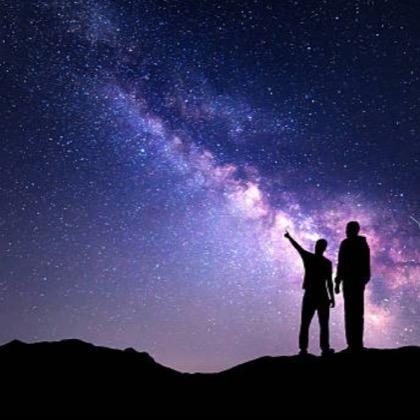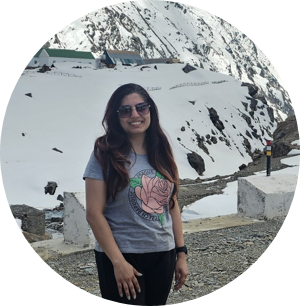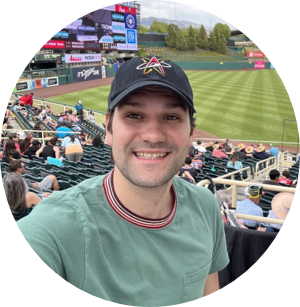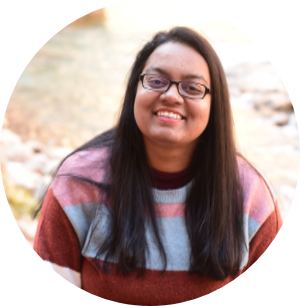Data
You will be redirected to cenamweb.org in 15 second(s). The JINA-CEE website is not updated anymore. The archived website can still be reached through the CeNAM website.
IReNA at the 2024 AccelNet Early Career Researcher Professional Development Workshop

Graduate students Chowdhury Irin Sultana (Central Michigan University) and Sam Porter (Notre Dame), along with postdoctoral researcher Honey Arora (Central Michigan University) were selected to participate in the 2024 AccelNet Early Career Researcher (ECR) Professional Development Workshop, which took place on October 14-16, 2024 in Alexandria, VA. AccelNet is the National Science Foundation program that supports networks of networks like IReNA. The workshop brought together 30 participants from 19 different AccelNet networks. Workshop goals included:
- To provide networking opportunities and information exchange to support ECRs in building a career across a variety of career paths
- To support reflection on individual goals and motivations for their involvement with international collaborative network building and how this will support their professional development
- To build capacity among ECRs arounds leading international collaborative projects both within and outside of academia and securing funds for such projects
- To identify key needs and gaps in building capacity and competency for international collaboration among ECRs
Throughout the workshop, participants were encouraged to talk about their career journeys, and in doing so, they identified no only similar experiences but also common challenges, as well as values and goals across a variety of disciplines like astrophysics, oceanography, and psychology and many others. The program included group discussions on cross-disciplinary communication, collaboration, and leadership. Three panel sessions focused on: interdisciplinary and international careers (e.g. from academia to industry, and highlighting key skills); the work that NSF program representatives do, and how to write and review grants; and how AAAS Fellows use their PhDs to advance science policy in DC.
Both workshop days concluded with reflections on what resonated with participants in their head, heart and hand: what have you learned? How do you feel? What are you going to do?
As reported by the IReNA ECRs: Lots of additional informal networking among peers from such diverse backgrounds offered participants valuable insights for enhancing communication skills, expanding funding opportunities, and personal introspection.
People had lots of questions about our unique successes at IReNA, in particular with respect to the Frontiers meeting; it was encouraging to see we’re field-leading in a number of ways and are helping our senior scientists/ECRs be successful.
The opportunity to reflect on my long-term goals as a scientist was well-facilitated by discussions with non-physicists, I will highly recommend this to other ECRs in our field. – S. Porter
It was a new experience as unlike any research-focused workshops. I had conversations with people from diverse fields about common challenges that often arise in collaborative work, such as differing goals, communication styles, and technical approaches. Through these discussions, I got a better understanding of how to establish a collaborative environment that supports open dialogue, aligns team objectives, and builds trust among members. I found commonalities in some collaboration issues with others and learned new strategies to enhance both team communication and the effectiveness of leadership. – I. Sultana
This workshop wasn’t just about advancing scientific knowledge—it focused on the often-overlooked emotional and mental aspects of career development.
One of the most impactful activities was identifying our core values—qualities we hold most dear and wish to prioritize. For me, this exercise illuminated three guiding values: family, adventure, and curiosity. This realization brought a sense of clarity about the kind of future I want to shape, where these values can flourish, regardless of the specific roles I may pursue. – H. Arora
The workshop was funded by the National Science Foundation (#2430616) and was facilitated by Dr. Marisa A. Rinkus (Toolbox Dialogue Initiative Center) and Dr. Leslie Smith (Your Ocean Consulting and the AccelNet iDOOS project).

Honey Arora (Central Michigan University, USA)
Honey is a postdoctoral researcher at Central Michigan University, working in the intricate analysis of (p,n) reactions to derive reaction rates for nuclei critical to understanding radiogenic heating processes. Her expertise lies in the nuanced study of nuclear fusion-evaporation reactions in the low-energy regime, advancing the frontiers of nuclear physics and astrophysical applications.
 Sam Porter (University of Notre Dame, USA)
Sam Porter (University of Notre Dame, USA)
Sam is a Ph.D student at the University of Notre Dame specializing in using ion traps to answer a wide variety of questions, including those within nuclear astrophysics. He is particularly interested in the role played by nuclear masses within exotic astrophysical processes, which he studies through experimental measurements and state-of-the-art modeling efforts.
 Irin Sultana (Central Michigan University, USA)
Irin Sultana (Central Michigan University, USA)
Irin does nuclear astrophysics research. She is interested in the stellar explosions on the so-called 'dead stars' (known as neutron stars). As an experimentalist, Irin gathers nuclear physics data by experiments and then uses that as an input to model the astrophysical environment.
